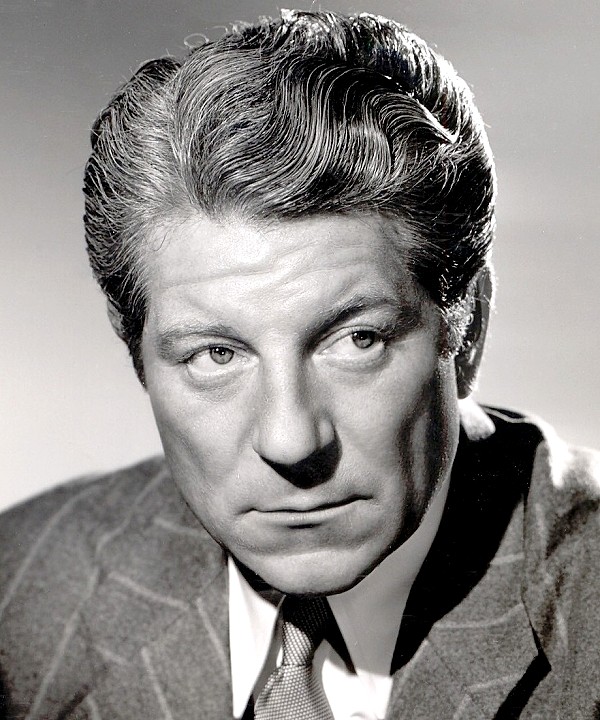Jean Gabin Short biography
Jean Gabin (17 May 1904 – 15 November 1976) was a French actor and singer. He is considered one of the greatest stars in French cinema history.
Gabin was born in Paris, the son of a cafe owner and cabaret entertainer. He began his career in show business as a teenager, working as a laborer and a bit player in Folies Bergères productions. After completing his military service, he returned to the entertainment business, working under the stage name of Jean Gabin at whatever was offered in the Parisian music halls and operettas, imitating the singing style of Maurice Chevalier, which was the rage at the time. He was part of a troupe that toured South America, and upon returning to France found work at the Moulin Rouge.
Gabin's performances started getting noticed, and better stage roles came along that led to parts in two silent films in 1928. Two years later Gabin made the transition to sound films in a 1930 Pathé Frères production, Chacun sa chance. Playing secondary roles, he made more than a dozen films over the next four years, including films directed by Maurice and Jacques Tourneur. But he only gained real recognition for his performance in Maria Chapdelaine, a 1934 production directed by Julien Duvivier. He was then cast as a romantic hero in the 1936 war drama La Bandera; this second Duvivier-directed film established him as a major star. The next year he teamed up with Duvivier again in the highly successful Pépé le Moko. Its popularity brought Gabin international recognition. That same year he starred in Jean Renoir's La Grande Illusion, an antiwar film that ran at a New York City theatre for an unprecedented six months. This was followed by another of Renoir's major works, La Bête Humaine (The Human Beast), a film noir tragedy based on the novel by Émile Zola and starring Gabin and Simone Simon, as well as Le Quai Des Brumes (Port of Shadows), one of director Marcel Carné's classics of poetic realism.
In the late 1930s, Gabin was flooded with offers from Hollywood but turned them all down until the outbreak of World War II. After the German occupation of France in 1940, he joined Renoir and Duvivier in the United States. During his time in Hollywood, Gabin began a romance with actress Marlene Dietrich that lasted until 1948.
Gabin's films in America—Moontide (1942) and The Impostor (1944), the latter with Duvivier—were not successful. Undaunted, Gabin joined General Charles de Gaulle's Free French Forces and earned the Médaille militaire and a Croix de Guerre for his wartime valor fighting with the Allies in North Africa. Following D-Day, Gabin served with the 2nd Armored Division that liberated Paris.
After the war, Gabin returned to France and resumed his acting career. He starred in several successful films, including Touchez pas au grisbi (Don't Touch the Loot) (1954), French Cancan (1954), and Le Clan des Siciliens (The Sicilian Clan) (1969). He also worked as a producer and director and made his only appearance in legitimate theatre in 1949.
Gabin died of leukemia in 1976 at the age of 72. He is considered one of the greatest stars in French cinema history.








